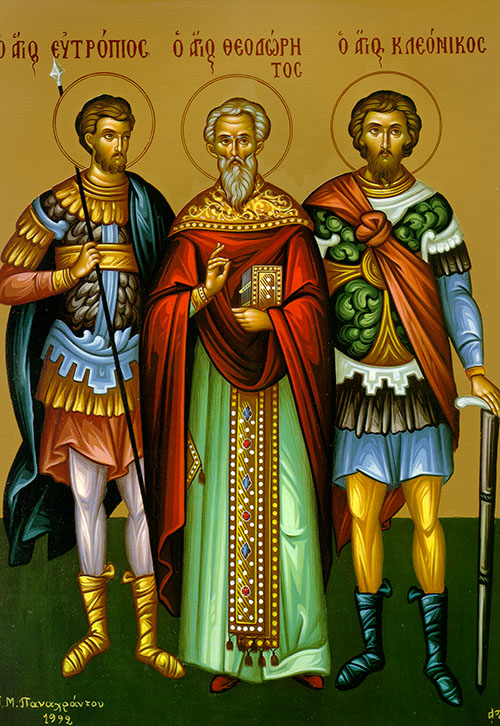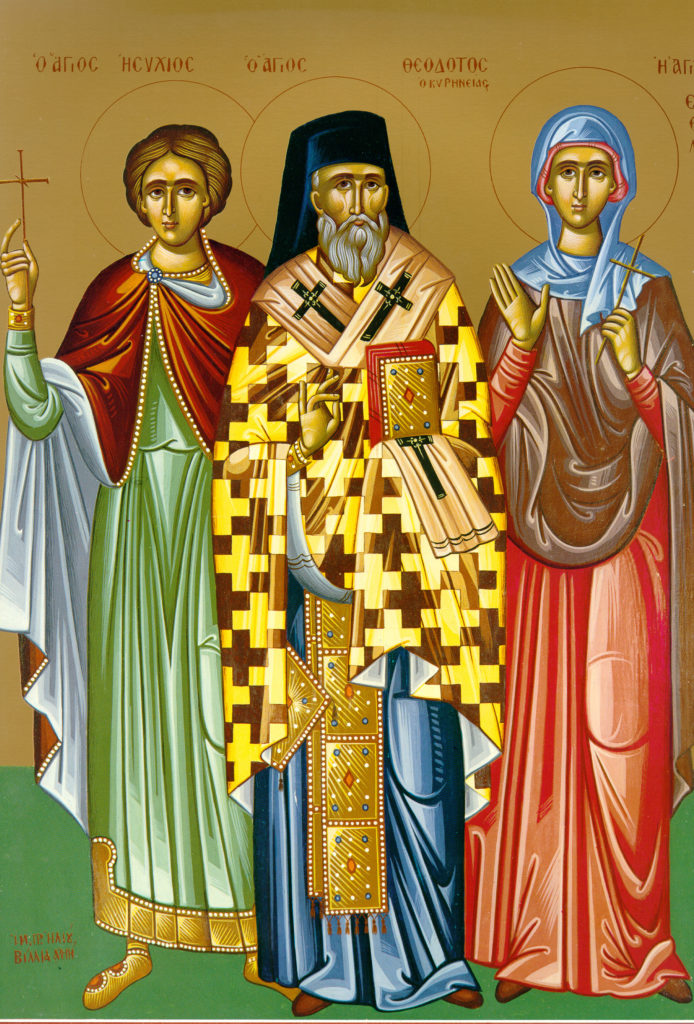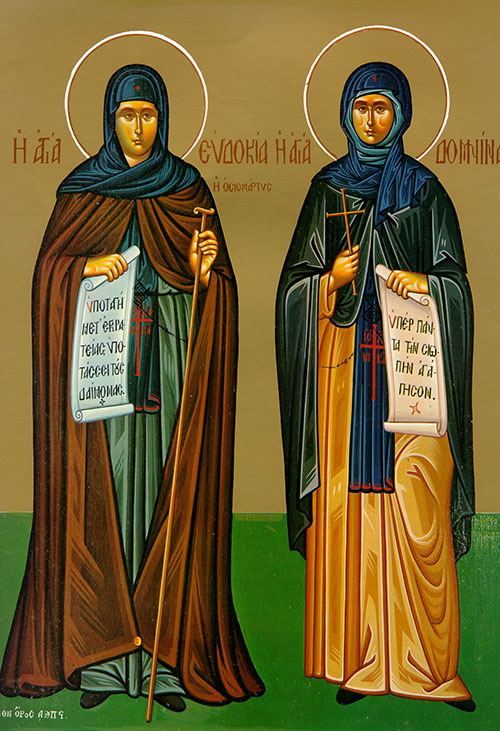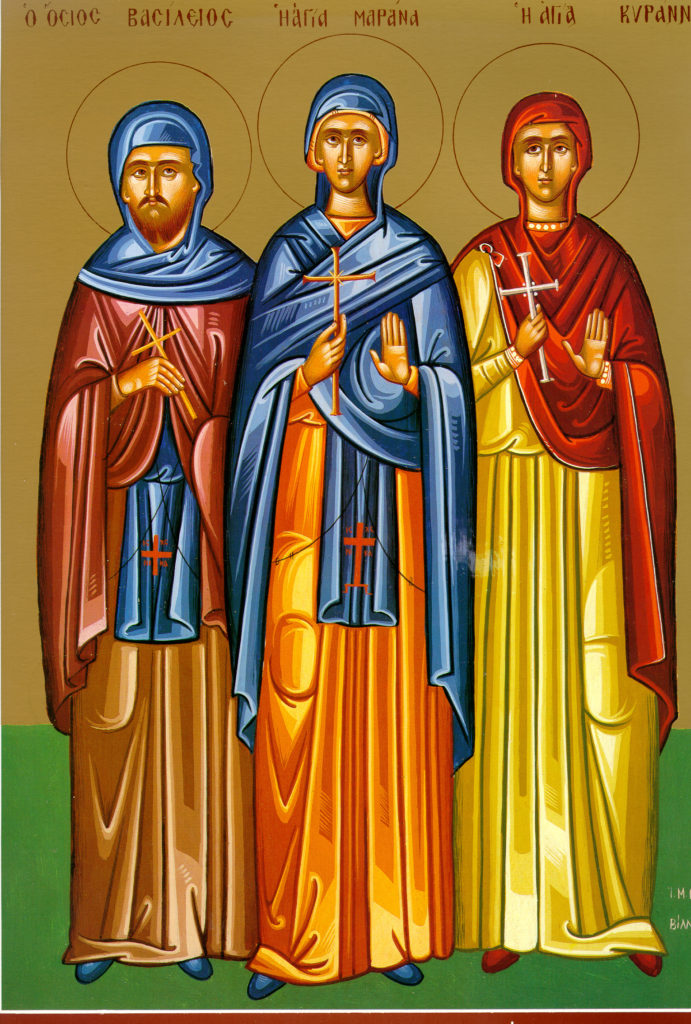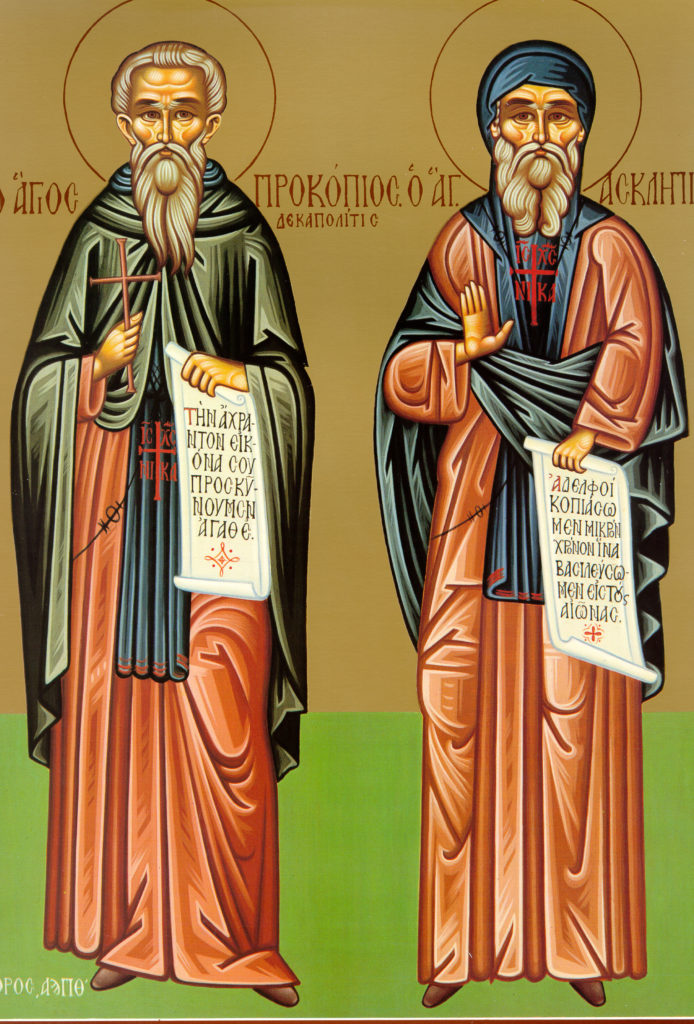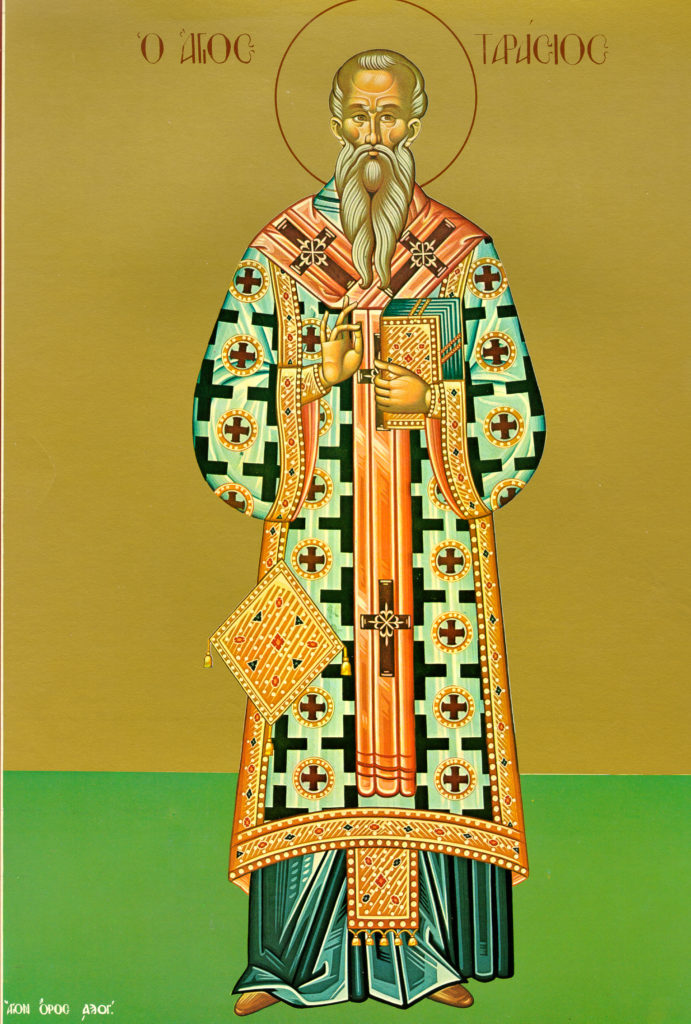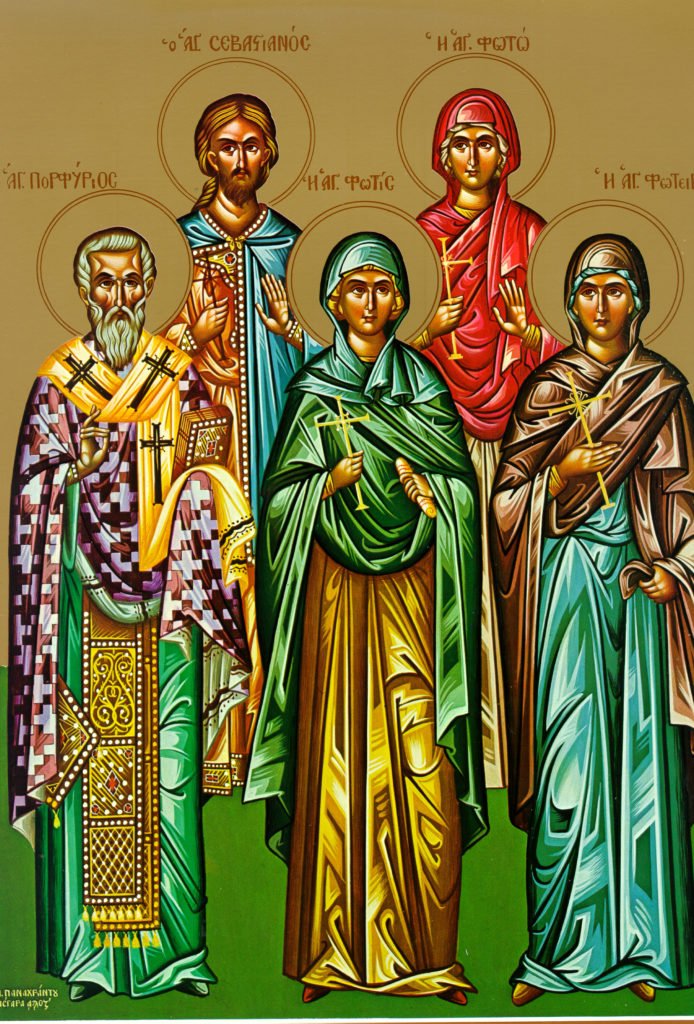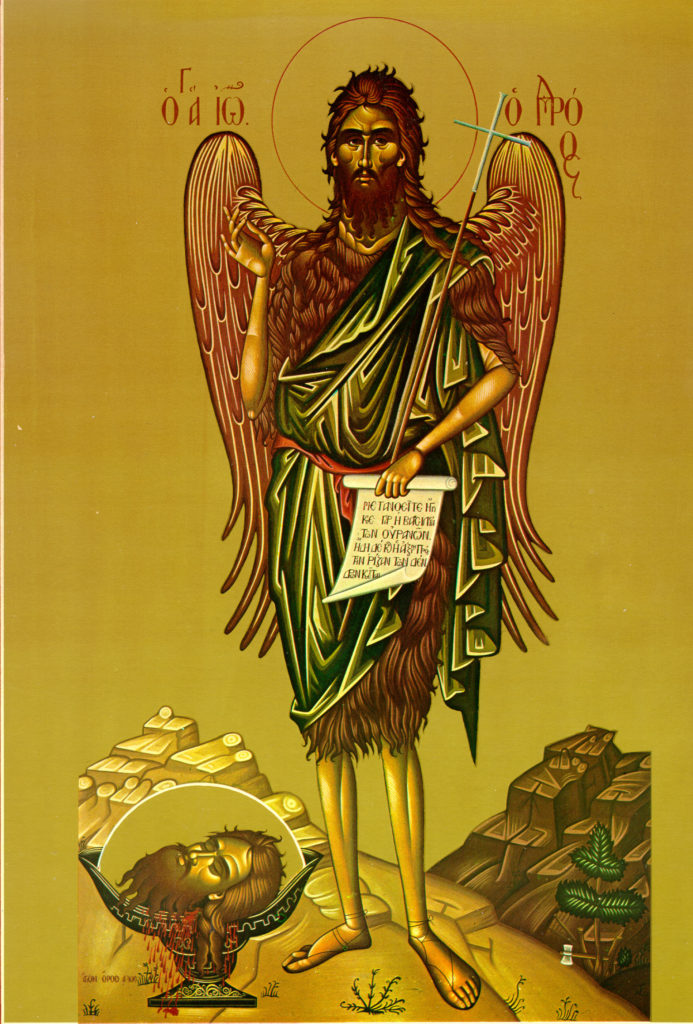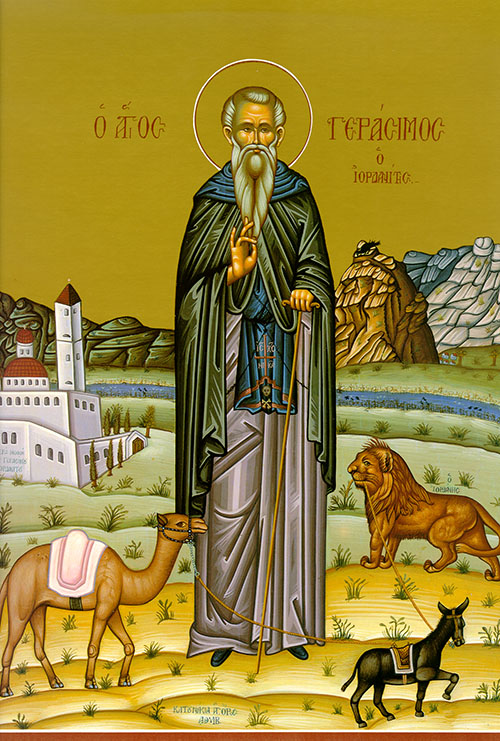

Our venerable father Gerasimus first learned about the ascetic life while he was in the Egyptian Thebaid. He went to the Jordan and founded a community in which there were seventy monks. He instituted a special rule in his monastery: each monk spent five days a week in their cell weaving baskets and rush mats. They were never allowed to light a fire in their cells. Five days a week they ate only a little dry bread and a few dates. The monks were required to keep their cells open so that, when they went out, anyone could enter and take whatever they needed. On Saturdays and Sundays they gathered in the monastery church. They had a common meal with a few vegetables and a little wine. Each monk would then bring in and place at the feet of the abbot that which he made during the past five days. St. Gerasimus set the example to all. During Great Lent he did not eat anything except what he received in Holy Communion. Gerasimus attended the Fourth Ecumenical Council in 451. Although at the beginning he leaned toward the Monophysite heresy of Eutyches and Dioscorus, he was a great defender and champion of Orthodoxy at the Council.
Troparion
Living a life angelic in fasting and powerful in prayer, a life unwavering in trials, unceasing in vigil, and temperate in all things, you astonished the angels and vanquished the legions of devils, O father Gerasimus. You gladden the hearts of the faithful, O blessed saint. The beasts were obedient to you for all of this. Since you have achieved a place of honor before the Lord, pray for the salvation of our souls.
Kontakion
Inflamed with an exalted ideal, you preferred Jordan severity to worldly delights. Until the day you died, the wild animals listened to you; and they died of sorrow upon your grave, O father. Truly they praised you before God. Pray to Him, O father Gerasimus, and keep us in your holy memory.
Readings for the day
Genesis 7: 6-9
Noah was six hundred years old when the flood came upon the earth. Together with his sons, his wife, and his sons’ wives, Noah went into the ark because of the waters of the flood. Of the clean animals and the unclean, of the birds, and of everything that crawls on on the ground, two by two, male and female came to Noah into the ark, just as God has commanded him.
Proverbs 9: 12-18
If you are wise, wisdom is to your advantage; if you are arrogant, you alone shall bear it.
Woman Folly is raucous, utterly foolish; she knows nothing.
She sits at the door of her house upon a seat on the city heights,
Calling passersby as they go on their way straight ahead:
“Let those who are naive turn in here, to those who lack sense I say.
Stolen water is sweet, and bread taken secretly is pleasing!”
Little do they know that the shades are there, that her guests are in the depths of Sheol!
Icon courtesy of Jack Figel, Eastern Christian Publications – ecpubs.com


